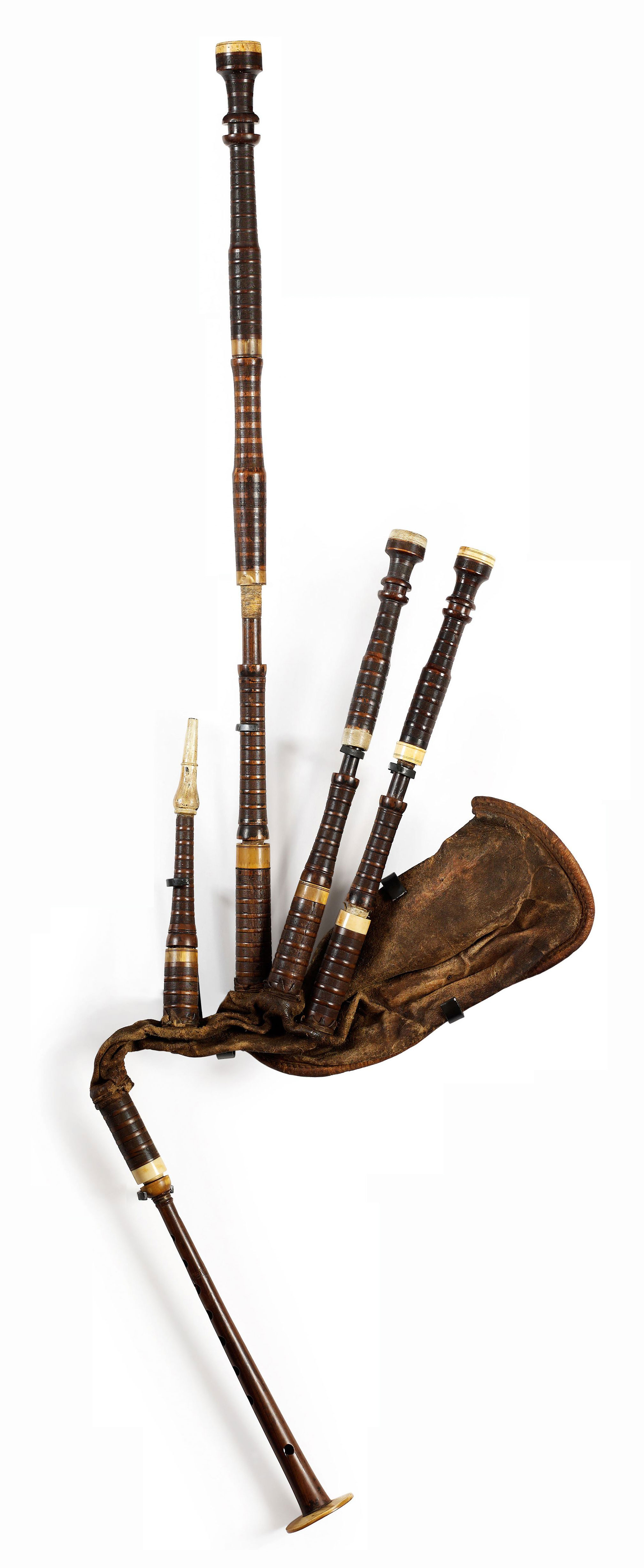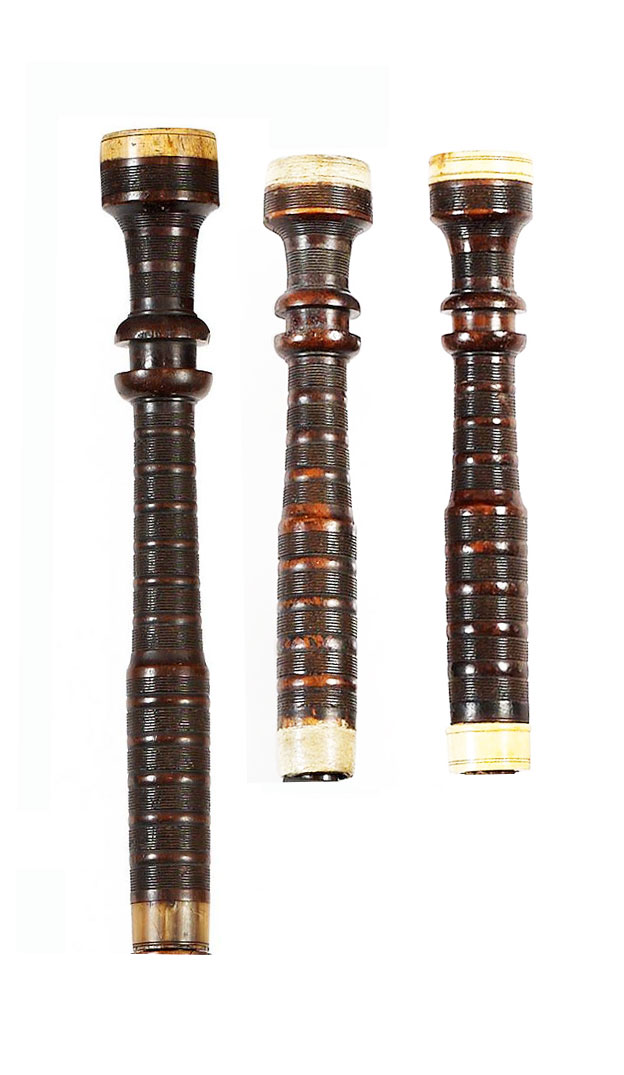Unknown # 82
This set of bagpipes was used by regiments of Highlanders in the British Army. The age of the pipes is uncertain, it has been confirmed that they are definitely old enough to live up to the inscription on its brass plaque which states: “…played at the Battle of Waterloo…”
The MacKillop family has owned this set of bagpipes for several generations. A long-standing tradition associates these pipes with the 79th (Cameron Highlanders) Regiment of Foot, a regiment who fought with distinction throughout Wellington’s final campaign against the French. For their meritorious actions the 79th earned the rare honour of being praised by Wellington in his Waterloo dispatch. Sadly the name of piper who played this set of pipes at Waterloo has been lost to history.
Each of the Highland Regiments who served during the Napoleonic wars carried at least one set of pipes into battle. At Waterloo there were three other Highland regiments brigaded with the Camerons. The sound of their bagpipes echoing over the battlefield boosted the morale of the regiments. This tradition was continued until the Second World War after which the use of bagpipes became ceremonial. However, in 1967 when the 1st Bn Argyll and Sutherland Highlanders commanded by Lt Col Colin Mitchell (Mad Mitch) re-occupied the Crater District in Aden, he was accompanied by his piper playing.
The MacKillop family has owned this set of bagpipes for several generations. A long-standing tradition associates these pipes with the 79th (Cameron Highlanders) Regiment of Foot, a regiment who fought with distinction throughout Wellington’s final campaign against the French. For their meritorious actions the 79th earned the rare honour of being praised by Wellington in his Waterloo dispatch. Sadly the name of piper who played this set of pipes at Waterloo has been lost to history.
Each of the Highland Regiments who served during the Napoleonic wars carried at least one set of pipes into battle. At Waterloo there were three other Highland regiments brigaded with the Camerons. The sound of their bagpipes echoing over the battlefield boosted the morale of the regiments. This tradition was continued until the Second World War after which the use of bagpipes became ceremonial. However, in 1967 when the 1st Bn Argyll and Sutherland Highlanders commanded by Lt Col Colin Mitchell (Mad Mitch) re-occupied the Crater District in Aden, he was accompanied by his piper playing.
Pipers were particularly vulnerable on the battlefield and were often some of the first casualties, like Piper George Clark. Clark served under Wellington in Portugal where he was wounded in the leg. However, despite his injury he continued to play. Many other pipers defied the enemy with sheer bravado like Piper MacKay of the 79th. At Waterloo, with his regiment formed into a square and facing the onslaught of the charging French cavalry, MacKay bravely left the safety of the square to march around his comrades while he played the Pibroch, War or Peace, indifferent to the dangers he faced.
The story of these pipes does not end on the field of Waterloo. Pipe-Major Angus Paul MacKillop of the 79th Regiment of Foot continued to carry them during the Victorian era, and played them proudly on campaign in Egypt and Sudan during the 1880s and 90s, just as the unknown piper did at the Battle of Waterloo.
The story of these pipes does not end on the field of Waterloo. Pipe-Major Angus Paul MacKillop of the 79th Regiment of Foot continued to carry them during the Victorian era, and played them proudly on campaign in Egypt and Sudan during the 1880s and 90s, just as the unknown piper did at the Battle of Waterloo.





